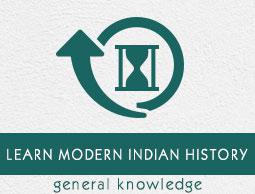An Act of Parliament in 1858 transferred the power to govern from the East India Company to the British Crown.
While authority over India had previously been wielded by the Directors of the Company and the Board of Control, now this power was to be exercised by a Secretary of State for India aided by a Council.
The Secretary of State was a member of the British Cabinet and as such was responsible to Parliament. Thus the ultimate power over India remained with British Parliament.
By 1869, the Council was completely subordinated to the Secretary of State. Most of the members of the India Council were retired British-Indian officials.
Under the Act, a government was to be carried on as before by the Governor-General who was also given the title of Viceroy or Crown's personal representative.
Viceroy was paid two and a half lakhs of rupees a year in addition to his other allowances.
With the passage of time, the Viceroy was increasingly reduced to a subordinate status in relation to the British Government in matters of policy as well as the execution of policy.
As a result of the Regulating Act, Pitt's India Act, and the later Charter Acts the Government of India was being effectively controlled from London.
Instructions from London took a few weeks to arrive and the Government of India had often to take important policy decisions in a hurry. Control by the authorities in London was therefore often more in the nature of post facto evaluation and criticism than of actual direction.
By 1870, a submarine cable had been laid through the Red Sea between England and India. Orders from London could now reach India in a matter of hours.
The Secretary of State could now control the minutest details of administration and do so constantly every hour of the day.
No Indian had a voice in the India Council or the British Cabinet or Parliament. Indians could hardly even approach such distant masters.
In a given condition, Indian opinion had even less impact on government policy than before. On the other hand, British industrialists, merchants, and bankers increased their Influence over the Government of India.
In India, the Act of 1858 provided that the Governor-General would have an Executive Council whose members were to act as heads of different departments and as his official advisers.
The position of the members of the Council was similar to that of Cabinet ministers. Originally there were five members of this Council but by 1918, there were six ordinary members, apart from the Commander-in-Chief who headed the Army Department.
The Council discussed all important matters and decided them by a majority vote; but the Governor-General had the power to override any important decision of the Council. In fact, gradually all power was concentrated in the Governor-General's hands.
The Indian Councils Act of 1861 enlarged the Governor-General's Council for the purpose of making laws in which capacity it was known as the Imperial Legislative Council.
The Governor-General was authorized to add to his Executive Council between six and twelve members of whom at least half had to be non-officials who could be Indian or English.
The Imperial Legislative Council possessed no real powers and should not be seen as a sort of elementary or weak parliament. It was merely an advisory body. It could not discuss any important measure, and no financial measures at all, without the previous approval of the Government
The Imperial Legislative Council had no control over the budget. It could not discuss the notions of the administration; the members could not even ask questions about them. The Legislative Council had no control over the executive.
No bill passed by Legislative Council could become an Act until it was approved by the Governor-General.
The Secretary of State could disallow any of its Acts. Thus, the only important function of the Legislative Council was to ditto official measures and give them the appearance of having been passed by a legislative body.
The Indian members of the Legislative Council were few in number and were not elected by the Indian people, but rather were nominated by the GovernorGeneral whose choice invariably fell on princes and their ministers, big zamindars, big merchants, or retired senior government officials.
For the better understanding, we can study the major administrative changes under the following heads −
Provincial Administration
Local Bodies
Change in Army
Public Services
Relations with Princely States
Administrative Policies and
Extreme Backwardness of Social Services
All these headings have been described briefly in subsequent chapters (with the same headings).


